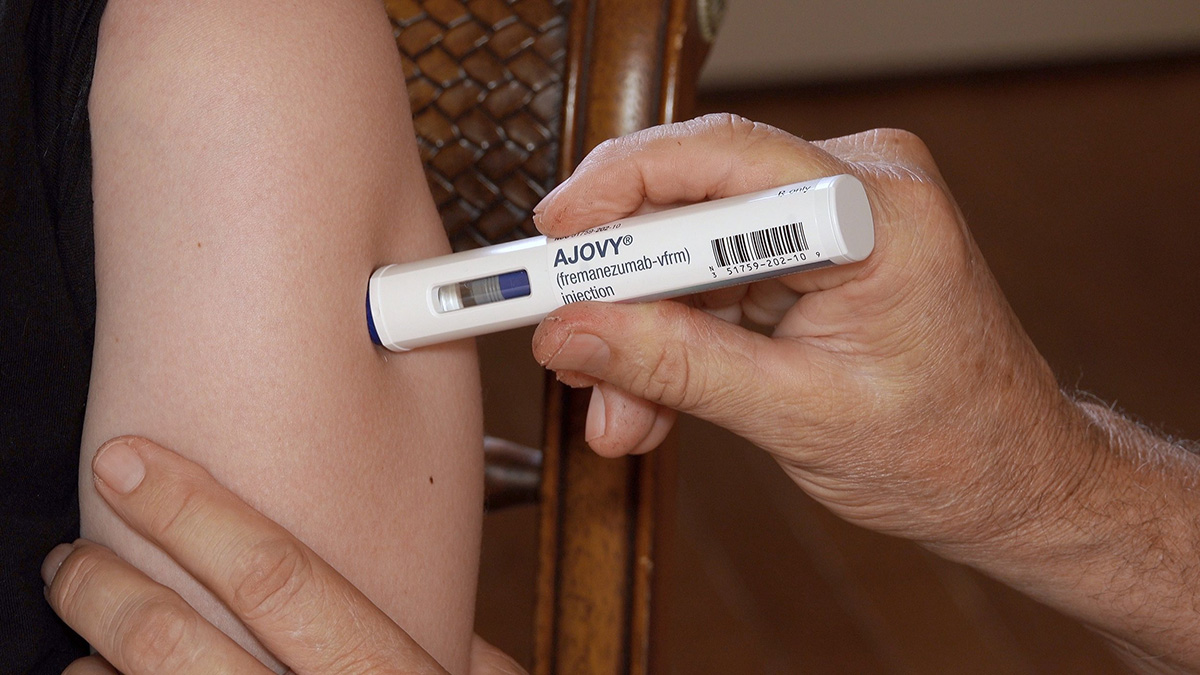

Finance
How Much Is A Cochlear Implant With Insurance
Published: November 22, 2023
Calculate the cost of a cochlear implant with insurance, and explore financing options for this life-changing medical device. Empower yourself with knowledge about financing hearing aids and implants.
(Many of the links in this article redirect to a specific reviewed product. Your purchase of these products through affiliate links helps to generate commission for LiveWell, at no extra cost. Learn more)
Table of Contents
Introduction
Imagine a world where you cannot fully experience the sounds that surround you – the laughter of loved ones, the melodies of your favorite songs, or the soothing sound of raindrops. For millions of people with severe hearing loss, this is their reality. Thankfully, advancements in medical technology have made it possible for these individuals to reclaim their sense of hearing through cochlear implants.
Cochlear implants are small electronic devices that are surgically implanted in the inner ear. They work by bypassing damaged parts of the ear and stimulating the auditory nerve, allowing individuals with severe hearing loss to perceive sound. These incredible devices have revolutionized the lives of countless people, enabling them to connect with the world in a way they never thought possible.
However, the benefits of cochlear implants come at a cost – both financially and emotionally. In this article, we will delve into the world of cochlear implants and explore the financial implications for individuals seeking this life-changing technology. We will discuss the costs associated with cochlear implants, the insurance coverage available, and other financial assistance options that can help alleviate the financial burden.
It is important to note that the information provided in this article is meant to serve as a general guide and may vary depending on individual circumstances and insurance coverage. It is always recommended to consult with healthcare providers and insurance representatives for personalized information.
Understanding Cochlear Implants
Cochlear implants are a remarkable technology that can provide the gift of sound to individuals with severe hearing loss. They consist of two main parts: an externally worn speech processor and an implanted receiver-stimulator.
The speech processor, typically worn behind the ear, picks up sounds from the environment and converts them into digital signals. These signals are then transmitted to the implanted receiver-stimulator through a small coil that sits on the skin. The receiver-stimulator, which is surgically placed under the skin, sends these signals to an array of electrodes that are implanted in the cochlea.
The electrodes in the cochlea stimulate the auditory nerve and send signals to the brain, allowing the individual to perceive sound. With training and rehabilitation, cochlear implant recipients can gradually learn to interpret these signals and understand speech and environmental sounds.
It is important to note that while cochlear implants can greatly improve hearing, they do not restore hearing to normal levels. The level of benefit varies from person to person, and some individuals may still require additional assistive devices or lip-reading in certain situations.
Cochlear implants are not suitable for everyone with hearing loss. They are typically recommended for individuals who have severe to profound hearing loss in both ears and who obtain limited benefit from hearing aids. A thorough evaluation by an audiologist and/or an ear, nose, and throat specialist (otolaryngologist) is necessary to determine if someone is a candidate for a cochlear implant.
The Cost of Cochlear Implants
Cochlear implants come with a significant price tag due to the complex technology and surgical procedures involved. The cost of a cochlear implant can vary depending on several factors, including geographic location, the specific device chosen, hospital fees, surgeon fees, anesthesia fees, and post-operative care.
On average, the cost of a cochlear implant can range from $40,000 to $100,000 or more. This amount covers the initial evaluation, surgery, implantation of the device, auditory rehabilitation, and follow-up appointments. It is important to note that this cost encompasses both the hardware (implant) and the services required for successful implementation.
It is essential for individuals considering a cochlear implant to thoroughly research and understand the cost implications. Speak with healthcare professionals and insurance providers to get a clear estimate of the total cost and potential out-of-pocket expenses.
While the cost of a cochlear implant may seem daunting, it is important to weigh it against the potential benefits and improved quality of life that it can provide. Cochlear implants have been found to significantly improve speech understanding, language development, and overall communication abilities for individuals with severe hearing loss.
It is worth noting that the cost of cochlear implants can extend beyond the initial implantation. These devices require ongoing maintenance, including battery replacements, regular mapping appointments, and potential device upgrades as newer technology becomes available.
Financial considerations should not deter individuals from pursuing cochlear implants. Insurance coverage and other financial assistance programs can help alleviate the burden of these costs, making this life-changing technology accessible to a wider range of individuals.
Overview of Insurance Coverage for Cochlear Implants
Insurance coverage for cochlear implants varies depending on the specific insurance plan and provider. While some insurance plans may cover the majority of the costs associated with cochlear implants, others may offer limited coverage or require individuals to meet certain criteria before approving coverage.
Many insurance plans categorize cochlear implants as a medically necessary procedure for individuals with severe hearing loss who have exhausted all other treatment options, such as hearing aids. However, it is important to note that insurance companies often have their own specific criteria and guidelines for coverage.
Prior to pursuing a cochlear implant, it is essential to thoroughly review your insurance policy and understand the specific coverage limitations and requirements. Here are a few key points to consider:
- Coverage for cochlear implants may require pre-authorization from the insurance company. This typically involves submitting documentation from healthcare professionals to demonstrate the medical necessity of the procedure.
- Insurance plans may have specific age requirements for coverage. Some plans may only cover cochlear implants for pediatric patients, while others may extend coverage to adults as well.
- Out-of-pocket costs such as deductibles, co-payments, and co-insurance may apply, even with insurance coverage. It is important to understand these costs and budget accordingly.
While private health insurance is the primary source of coverage for cochlear implants, government-funded programs such as Medicaid and Medicare may also offer coverage for eligible individuals. These programs generally have their own specific coverage criteria and guidelines.
It is crucial to work closely with your healthcare providers and insurance representatives to navigate the insurance coverage process. They can assist in gathering the necessary documentation, understanding the insurance requirements, and submitting the appropriate claims.
In cases where insurance coverage is limited or unavailable, there may be other financial assistance options available, such as charitable foundations, grants, or financing programs. These options can help bridge the financial gap and make cochlear implants more accessible for those who need them.
Factors Affecting Insurance Coverage and Costs
Several factors can influence the insurance coverage and costs associated with cochlear implants. Understanding these factors can help individuals navigate the insurance process and plan for potential expenses. Here are some key factors to consider:
- Insurance Policy: The specific terms and coverage limitations outlined in your insurance policy play a significant role in determining the extent of coverage for cochlear implants. It is important to review your policy and understand what is covered, any exclusions or limitations, and any requirements for pre-authorization.
- Medical Necessity: Insurance providers typically require documentation from healthcare professionals to establish the medical necessity of a cochlear implant. This documentation may include audiograms, medical history, and a detailed explanation of why a cochlear implant is the recommended treatment option.
- Age Restrictions: Some insurance plans may have specific age restrictions for cochlear implant coverage. While coverage is often available for pediatric patients, coverage for adults may vary among insurance providers. It is important to check the age requirements specified in your insurance policy.
- Network Coverage: Insurance plans often have a network of preferred healthcare providers. Choosing an in-network surgeon and hospital for the cochlear implant procedure can help ensure maximum coverage. Out-of-network providers may result in higher out-of-pocket costs or even denial of coverage, depending on your insurance policy.
- Cost-Sharing Obligations: Insurance plans typically require the insured individual to pay certain out-of-pocket costs, such as deductibles, co-pays, and co-insurance. These cost-sharing obligations can vary among insurance plans and can significantly impact the total costs associated with cochlear implants.
- Insurance Prior Authorization: Many insurance plans require pre-authorization for cochlear implant coverage. This involves submitting documentation to the insurance company to demonstrate the medical necessity of the procedure. Failing to obtain prior authorization can result in a denial of coverage.
It is important to closely review your insurance policy, consult with your healthcare providers, and communicate with your insurance representative to fully understand all the factors that can affect coverage and costs. Being proactive and well-informed can help you navigate the insurance process more effectively and make informed decisions about your treatment options.
Researching Insurance Coverage for Cochlear Implants
Researching and understanding your insurance coverage for cochlear implants is crucial in order to make informed decisions and plan for potential costs. Here are some steps to consider when researching insurance coverage:
- Policy Review: Start by reviewing your insurance policy in detail. Look for any specific coverage limitations, requirements for prior authorization, age restrictions, and cost-sharing obligations (such as deductibles, co-pays, and co-insurance).
- Contact your Insurance Provider: Reach out to your insurance provider’s customer service department to discuss your coverage for cochlear implants. Ask specific questions about the extent of coverage, requirements for pre-authorization, and any necessary documentation to support your claim.
- Consult with Healthcare Providers: Speak with your primary care physician, audiologist, or otolaryngologist to gather information and insights about the insurance coverage process. They may have experience working with insurance companies and can provide guidance on navigating the system.
- Document Collection: Collect all relevant medical documentation supporting the medical necessity of the cochlear implant. This may include audiograms, medical history, and letters of recommendation from healthcare professionals.
- Pre-authorization Process: If your insurance requires pre-authorization, coordinate with your healthcare team to ensure that all necessary documentation is submitted in a timely manner. Follow up with your insurance provider to confirm receipt and track the progress of your authorization request.
- Appealing a Denial: In the event that your insurance denies coverage for cochlear implants, you have the right to appeal the decision. Consult with your healthcare provider and insurance representative to understand the appeal process and gather any additional documentation that may strengthen your case.
- Seek Additional Financial Assistance: If insurance coverage is limited or not available, explore other financial assistance options. Charitable foundations, grants, and financing programs specifically for hearing healthcare may be able to provide financial support.
Remember to keep a record of all communications with your insurance provider, including dates, names of representatives spoken to, and any reference numbers or case numbers provided. This documentation can be valuable in case of any disputes or appeals.
Researching and understanding insurance coverage for cochlear implants can be a complex process. Consulting with healthcare professionals and insurance representatives can provide valuable guidance and ensure that you are well-informed throughout the process.
Other Financial Assistance Options
While insurance coverage is often the primary source of financial assistance for cochlear implants, there are other options available to help alleviate the financial burden. Here are some alternative avenues to explore:
- Medicaid: Medicaid is a government-funded program that provides healthcare coverage to low-income individuals and families. Depending on the state, Medicaid may offer coverage for cochlear implants for eligible individuals. Contact your local Medicaid office to determine if you qualify and explore what coverage options are available.
- Medicare: Medicare is a federal health insurance program primarily for individuals aged 65 and older, as well as younger people with disabilities. Medicare may provide coverage for cochlear implants in specific cases. Talk to your healthcare provider and inquire about Medicare coverage criteria and requirements.
- Charitable Foundations: There are several charitable foundations that offer financial assistance for hearing-related medical expenses, including cochlear implants. These foundations may provide grants or scholarships to help offset the costs. Research and reach out to these foundations to determine if you qualify for their assistance programs.
- Payment Plans and Financing: Some hospitals and healthcare providers offer payment plans or financing options for cochlear implants. These options allow you to spread out the cost of the procedure over time, making it more manageable. Discuss with your healthcare provider to explore if such payment options are available.
- Clinical Trials: Participating in a clinical trial for cochlear implants may offer the opportunity to receive the device at a reduced cost or even for free. Clinical trials also contribute to advancements in the field of cochlear implants. Consult with your healthcare provider or research clinical trial databases for potential opportunities.
- Community Support: Seek out local organizations, support groups, or nonprofits that focus on hearing loss and cochlear implants. These groups may offer financial assistance or guidance on accessing resources in your community.
Exploring these alternative financial assistance options can help make the cost of cochlear implants more manageable. Each option has its own eligibility criteria and application process, so it is important to research and understand the requirements of each program.
It is also worth noting that combining multiple financial assistance options may help further reduce the financial burden. Consulting with healthcare professionals, insurance representatives, and financial advisors can provide valuable insights and guidance in pursuing these various options.
Remember, don’t let financial constraints discourage you from exploring the possibility of a cochlear implant. By exploring these financial assistance avenues, you may find the support you need to embark on your journey to improved hearing and a better quality of life.
Conclusion
Cochlear implants have transformed the lives of individuals with severe hearing loss, offering them the opportunity to reconnect with the world of sound. While the cost of cochlear implants may initially seem daunting, it is important to explore and understand the available financial assistance options.
Insurance coverage for cochlear implants can vary depending on the specific policy and provider. It is crucial to thoroughly review your insurance policy, communicate with your insurance representative, and gather the necessary documentation to support your claim. Additionally, government programs like Medicaid and Medicare, as well as charitable foundations, may offer financial assistance for eligible individuals.
Even if insurance coverage is limited or unavailable, payment plans and financing options provided by hospitals and healthcare providers can help manage the costs. Participating in clinical trials or seeking support from community organizations may also provide alternative avenues for financial assistance.
Remember, the cost of cochlear implants should not be a deterrent in pursuing this life-changing technology. Improved hearing can greatly enhance communication, social interactions, and overall quality of life. By conducting thorough research, consulting with healthcare professionals, and exploring all available financial assistance options, you can embark on the journey towards improved hearing and a brighter future.














